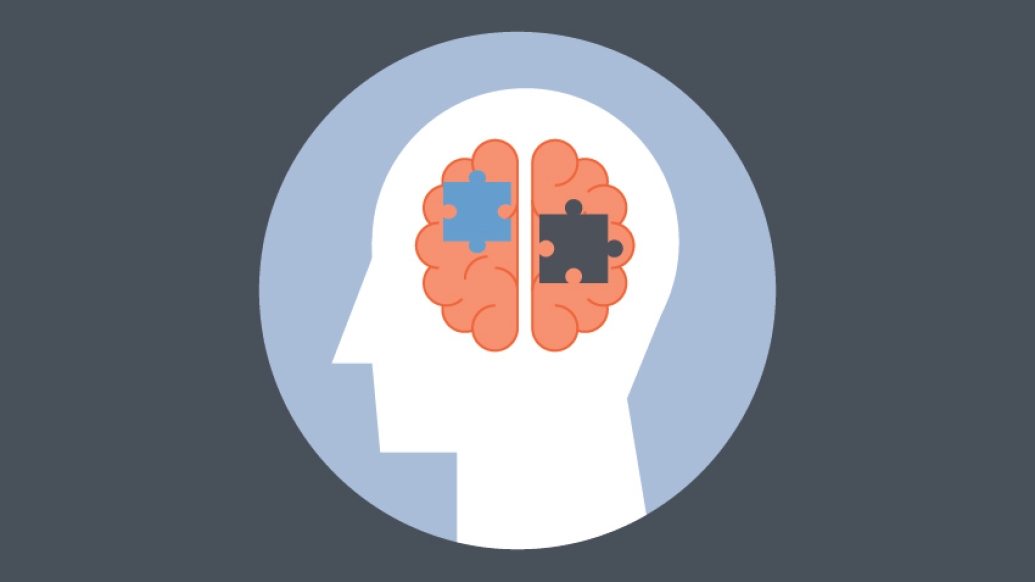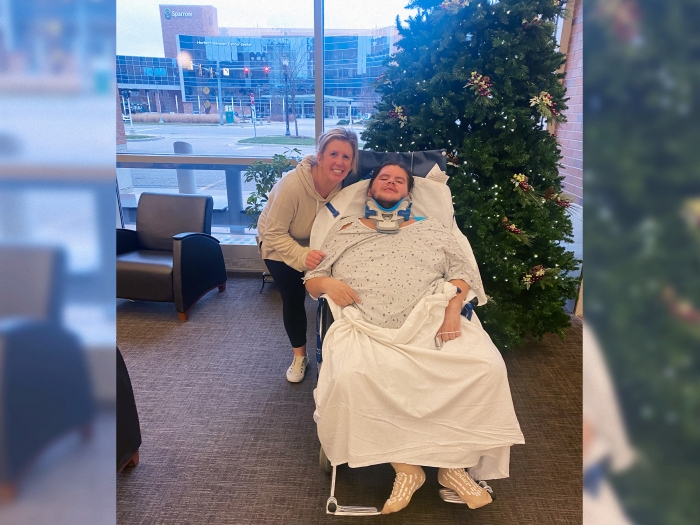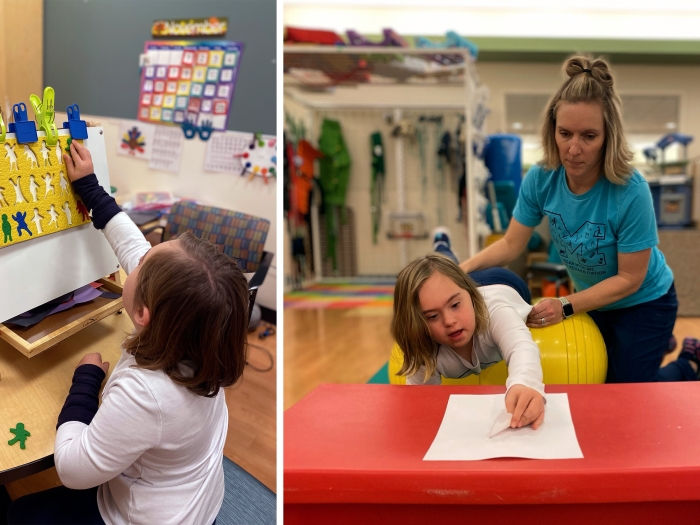Treatment based on brain tissue oxygen levels might help patients have better recoveries. A new clinical coordinating center will help researchers find out.
7:00 AM
Author |

An estimated 2.5 million Americans sustain a traumatic brain injury, or TBI, each year, according to the Centers for Disease Control and Prevention. Severe TBI contributes to 30 percent of all injury-related deaths, and many who survive are left permanently disabled.
"Of the nearly 300,000 hospital admissions annually for TBI, about 40 percent are classified as severe," says William Barsan, M.D., a professor of emergency medicine at Michigan Medicine.
LISTEN UP: Add the new Michigan Medicine News Break to your Alexa-enabled device, or subscribe to our daily audio updates on iTunes, Google Play and Stitcher.
"Unfortunately, less than 20 percent of patients with a severe TBI make a good recovery — and many are left with lifelong disabilities and medical needs."
Barsan is one of the principal investigators of an ongoing emergency department clinical trial, Brain Oxygen Optimization in Severe TBI, Phase 3 (BOOST-3), which aims to improve outcomes for severe TBI patients.
In addition to Barsan, primary investigators for the BOOST-3 trial are Ramon Diaz-Arrastia, M.D., Ph.D., director of the Traumatic Brain Injury Clinical Research Center in the Perelman School of Medicine at the University of Pennsylvania; Lori Shutter, M.D., professor of critical care medicine, neurology and neurosurgery at the University of Pittsburgh and medical director of neurointensive care units at the University of Pittsburgh Medical Center; and Sharon Yeatts, Ph.D., associate professor of biostatistics at the Medical University of South Carolina.
Severe TBI patients in the intensive care unit have been managed by monitoring intracranial pressure and treating the elevated pressure to prevent secondary injury, Barsan notes.
Our main goal is to improve long-term outcome and improve quality of life after severe TBI through the results of the BOOST-3 trial.William Barsan, M.D.
But recent clinical trial data have shown that this approach may not be enough.
"New trials are showing that monitoring the partial pressure of oxygen in brain tissue allows for more timely interventions," Barsan says. "Because of this, many physicians have started measuring brain oxygen in these patients as part of standard practice. It is unknown if this strategy, which requires an additional procedure, is better, worse or the same as the traditional approach."
That's why Barsan, Diaz-Arrastia, Shutter and Yeatts designed the BOOST-3 trial.
This $32 million trial will be conducted in the National Institutes of Health-funded Strategies to Innovate Emergency Care Clinical Trials Network (SIREN). Michigan Medicine is the clinical coordinating center for the network.
Building on prior research
Diaz-Arrastia and Shutter conducted the trial's second phase, BOOST-2, which was published in 2017. That trial hypothesized that treating patients based on measurements of both intracranial pressure and brain oxygen levels would reduce the duration and severity of periods in which brain tissue oxygen levels were low in patients with TBI compared with treatment of intracranial pressure alone.
MORE FROM THE LAB: Subscribe to our weekly newsletter
The team explained that low levels of brain tissue oxygen can cause further loss of brain cells or prevent their recovery. Knowing about both pressure and oxygen in the brain may provide critical care doctors the clues they need to precisely adjust medications and breathing machine settings for patients.
"We found that brain hypoxia burden was reduced by 74 percent in the patients monitored and treated based on partial pressure of oxygen in brain tissue and intracranial pressure monitoring compared to intracranial pressure monitoring alone," Shutter says. "We're now building upon the data we collected in the BOOST-2 trial and moving onto this third phase, where we will expand our hypothesis."
That new hypothesis: Treating TBI based on partial pressure of oxygen in the brain tissue and intracranial pressure monitoring will improve neurological outcomes six months after the injury compared with treatment based on intracranial pressure monitoring alone.
"It's important to consider the long-term survival and health of patients with TBI," Shutter says. "This phase of the trial will show whether we can improve long-term outcome with this treatment strategy."
A coordinated effort
BOOST-3 will begin in 2018 at 45 SIREN clinical sites across the United States and will continue for five years.
It plans to enroll 1,094 participants with severe TBI. Subjects will be randomized within six hours of arriving at an enrolling hospital, but no longer than 12 hours from injury.
All patients will have brain tissue oxygen monitors and intracranial pressure monitors placed within six hours of arrival at the hospital. Patients will then be randomized to treatment based on intracranial pressure alone or treatment based on both intracranial pressure and brain tissue oxygen levels for the first five days after admission, with all other care being standard.
SEE ALSO: Focusing on 'Golden Hours' of Care to Improve Traumatic Brain Injury Outcomes
Subjects will be followed for six months, and investigators will compare the functional outcomes and neurological function of the two groups.
SIREN seeks to improve the outcomes of patients with neurologic, cardiac, respiratory, hematologic and trauma emergencies by identifying effective treatments administered in the earliest stages of critical care and is supported by the National Institute for Neurological Disorders and Stroke (NINDS) and the National Heart, Lung and Blood Institute (NHLBI). Beyond Michigan Medicine, the network includes a data coordinating center at the Medical University of South Carolina and 11 award hubs with primary investigators at each.
"Improving the recovery of patients with severe brain injury is an important priority at the NIH," says Jeremy Brown, M.D., the NINDS medical officer who works with the SIREN team. "The results of this trial will provide important information which doctors and nurses around the country will then use to benefit the patients in their care."
Excitement for the collaborative approach on the study is shared across institutions.
"The SIREN data coordinating center at the Medical University of South Carolina could not be more excited about helping to lead this effort to improve the care of severe TBI patients," Yeatts says. "My team at MUSC has been collaborating with TBI experts across the country on various trials, and we now have the opportunity to help to inform health care providers of best treatment approaches so patients all over the country will have better outcomes.
"Regardless of the results, this study will have a dramatic impact, and we are proud to be a part of it."
Barsan, Diaz-Arrastia, Shutter and Yeatts hope this phase of the trial will build upon the findings from BOOST-2.
"We truly hope this clinical trial will provide emergency, neurosurgery and critical care physicians with improved treatment protocols for severe TBI going forward," Barsan says. "Our main goal is to improve long-term outcome and improved quality of life after severe TBI through the results of the BOOST-3 trial."

Explore a variety of healthcare news & stories by visiting the Health Lab home page for more articles.

Department of Communication at Michigan Medicine
Want top health & research news weekly? Sign up for Health Lab’s newsletters today!





